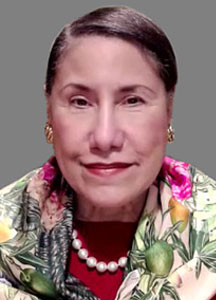ASALH has a beautiful new website…
August 1, 2017
Dear ASALH Members and Friends,
 The Association for the Study of African American Life and History has a beautiful new website asalh.org, thanks to the talented web-design team of our Marketing and Public Relations Committee, co-chaired by LaNesha DeBardelaben and Roy Betts. Please note ASALH’s revised logo with the founding date in the “A.” While we are still adding content to the site, we especially call your attention to the announcement of our 102nd Annual Meeting and Conference on September 27- October 1 in Cincinnati, OH.
The Association for the Study of African American Life and History has a beautiful new website asalh.org, thanks to the talented web-design team of our Marketing and Public Relations Committee, co-chaired by LaNesha DeBardelaben and Roy Betts. Please note ASALH’s revised logo with the founding date in the “A.” While we are still adding content to the site, we especially call your attention to the announcement of our 102nd Annual Meeting and Conference on September 27- October 1 in Cincinnati, OH.
Please click on the link and register today for the conference. It promises to offer a rich array of sessions and events on one of the most crucial themes of our time — “The Crisis in Black
Education.”
Evelyn Brooks Higginbotham
ASALH National President
ASALH President’s Statement on Black History Month
February 1, 2017
Dear ASALH Members and Friends:
At the heart of Black History Month is the importance of education. ASALH’s annual theme for 2017, “The Crisis in Black Education,” is especially relevant today, given the heated controversy surrounding the recent hearings and confirmation of the Secretary of Education Betsy DeVos. It is no overstatement to say that this appointment by President Trump has sparked tremendous concern in regard to the fate of public schools for minorities and the poor.
ASALH shares this concern and also emphasizes that the problem of educational inequality has a long history in America. In the days of slavery, state laws deemed it illegal to teach slaves to read and write. Even in the Northern free states, where slavery was outlawed, black children could not get an equal education. In Connecticut in 1833 the white educator Prudence Crandall found her school burned to the ground because it was dedicated to the education of black girls. The legal case Roberts v. City of Boston in 1850 emerged from the courage of the father of young Sarah Roberts and the larger black community’s protest efforts against the city’s segregated public schools.
The problem of inequality is central to the history of black education. In the public schools of the southern states as well as in the northern states, in such cities as Chicago, Detroit, Philadelphia, Boston and many other cities, racial inequality has been the target of civil rights litigation throughout the twentieth-century. Indeed current litigation and newspaper coverage call attention to not only unequal resources but also incidents of racial prejudice in urban public schools.
ASALH urges greater resolve in dealing with existing problems at both the K-12 and college/ university levels. These problems are multiple and varied in nature. They include: the lack of resources in inner city schools, the pipeline-to-prison reality for many youths, the summer-learning gap, the too-often placement of black male children in special education classes, the severe financial challenges at many historically black colleges and universities, and not least of all the failure to teach correctly, if at all, the experiences as well as contributions of African Americans to this nation.
ASALH believes that to refuse to acknowledge the education of black people as a crisis belittles the importance of the many efforts to confront and combat the problems. Let us commemorate Black History Month by renewing our commitment to addressing the crisis in black education.
Sincerely,
Evelyn Brooks Higginbotham
ASALH National President
Click here for the full Executive Summary for the 2017 Black History Theme.
View more information about the 2017 Black History Month Luncheon.
